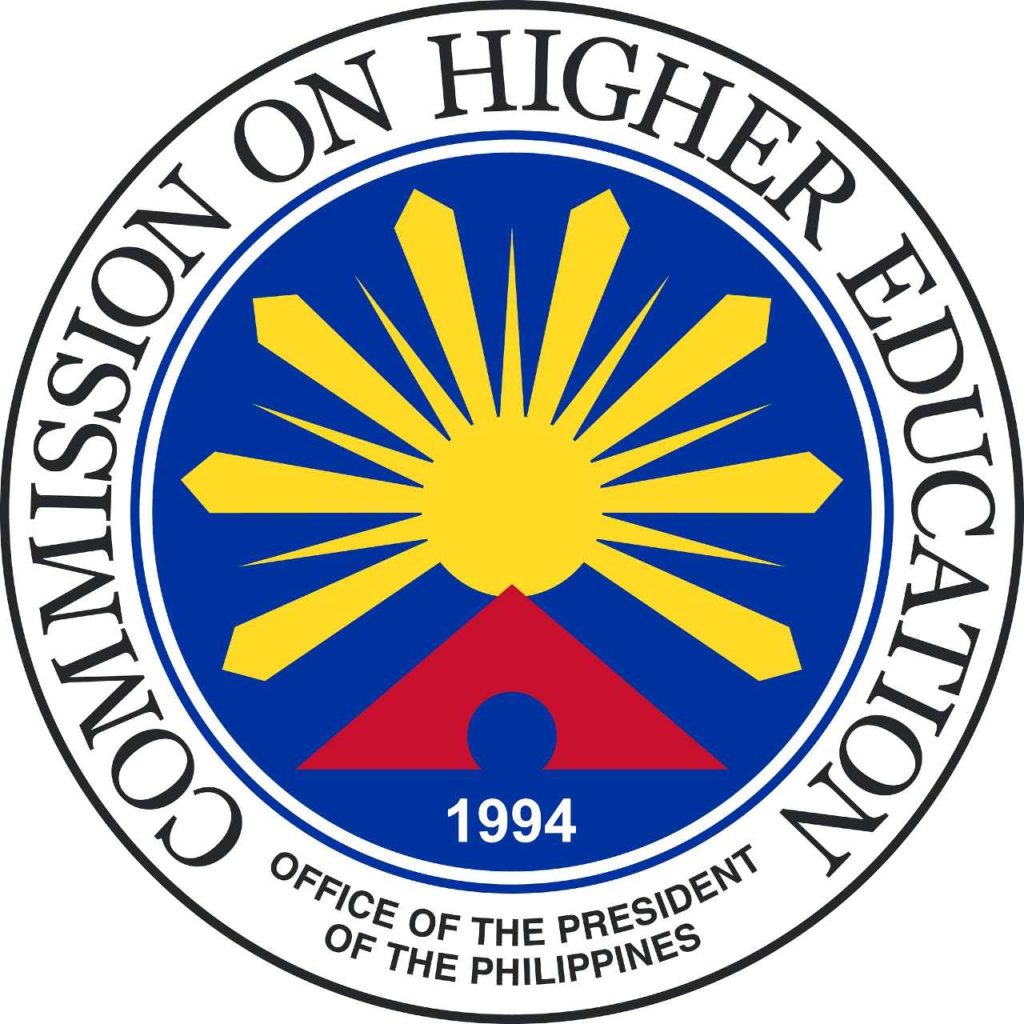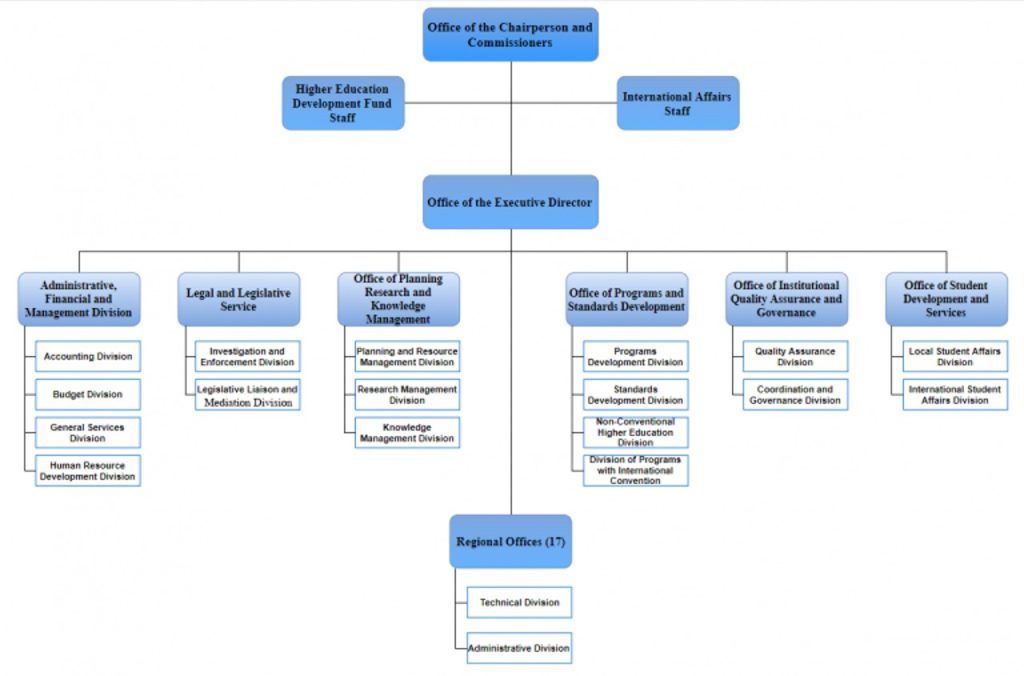The Commission on Higher Education (CHED) is a Philippine government institution dedicated to improving access to quality higher education. It offers various programs and projects in an effort to support the Filipino students, particularly those from disadvantaged backgrounds, ensuring that education remains a pathway to personal and national development. With CHED, the government hopes to foster an inclusive educational environment and contribute to building a more competitive and skilled workforce in the country.
As a collegial body, CHED’s mandate primarily revolves around serving the public by overseeing tertiary and graduate education in the Philippines. It aims to promote equitable access to quality higher education, ensuring that all Filipinos have the opportunity to pursue their educational goals. In this article, we looked into this agency for a better understanding of its purpose, powers, functions, programs, and services towards this goal to serve the Filipinos.
What is CHED?
CHED stands for the Commission on Higher Education, a government agency born out of the need for reforms on the Philippine education system. It was established upon the passage of Republic Act No. 7722, or the Higher Education Act of 1994, and has since been in charge of the tertiary and graduate education system.
As a governing body, CHED operates as an attached agency under the Office of the President with the objectives of:
- Promoting relevant and quality higher education
- Ensuring accessibility for all, especially for those who may struggle financially
- Protecting academic freedom and fostering responsible leadership
The commission is also tasked with formulating policies, monitoring educational institutions, and ensuring that programs meet international standards.
History

The commission was officially created on May 18, 1994 following the passage of Republic Act No. 7722, or the Higher Education Act of 1994. It acts as a collegial body tasked with formulating plans, policies and strategies relating to higher education and the operation of CHED. Its creation was part of the reform towards the trifocalization of the education sector as follows:
- The CHED for tertiary and graduate education,
- The Department of Education (DepEd) for basic education and
- The Technical Education and Skills Development Authority (TESDA) for technical-vocational and middle-level education.
Later, with the enactment of Republic Act (RA) No. 8292, otherwise known as the “Higher Education Modernization Act of 1997,” a modified, complete, adequate and integrated system of higher education was established. It standardized the Governing Boards of chartered state universities and colleges (SUCs) nationwide for the following purposes:
- To achieve a more coordinated and integrated system of higher education;
- To render them more effective in the formulation and implementation of policies on higher education;
- To provide for more relevant direction in their governance; and
- To ensure the enjoyment of academic freedom as guaranteed by the Constitution.
CHED Logo

Just like how it does for other institutions, the logo of CHED also represents the story and goals of Philippine Higher Education. Its elements symbolizes the mission and vision of the Commission as follows:
- The CHED logo features a pyramid which represents the ideal three-level, manpower structure of the country, comprising basic level skills, middle or semi-skilled workers, and high or professional levels of human resource and the primary concern of higher education.
- The human silhouette inside the pyramid refers to the human resources development of every Filipino citizen.
- The rising sun symbolizes the dawn of a new era in the form of the commission, signifying the emergence of much needed attention and appropriate reforms.
- The color triad as its pallette: red, yellow, and blue correspond to the colors of the Philippine flags representing its contribution to nation building.
- The year 1994 indicates the year when CHED was officially created by law.
Mission
CHED has made it its mission to do as follows:
“To promote equitable access and ensure quality and relevance of higher education institutions and their programs.”
Vision
The commission carries out its mandates and responsibilities by operating under this vision:
“Philippine higher education system that is equitable and producing locally responsive, innovative, and globally competitive graduates and lifelong learners.”
Core Values
The commission, as a unit, adheres to the following core values:
- Fairness
- integrity
- teamwork
- innovativeness
- commitment and competence;
Policy Statement
CHED promises to offer services and lead the Philippine higher education sector towards its goal by:
- Create a fair and sustainable higher education system, producing graduates who are responsive to local needs, innovative, globally competitive, and committed to lifelong learning.
- Align educational mandates to promote inclusive access to higher education, ensure the quality of programs, and maintain the relevance of educational institutions in the evolving global landscape.
- Exemplify the importance of resilience, humility, integrity, and excellence in its service delivery, fostering a development-driven mindset among its workforce.
- Fulfill all legal and regulatory obligations, striving for continual improvement in its Quality Management System.
Mandate
As the commission in charge of using education as the main crux of transformational leadership, CHED’s mandate includes:
- Promote quality higher education that meets international standards, producing competent graduates.
- Make quality higher education available to everyone, especially those who cannot afford it.
- Protect academic freedom to foster intellectual growth, effective leadership, and the preservation of cultural heritage.
- Uphold moral standards by eliminating corruption, promoting transparency, and encouraging participatory governance within the Commission and the education sector.
Service Pledge
Both the officials and staff of the commission abides by the following pledge:
- Offer timely and respectful service to all
- Innovate operations to enhance service quality and workforce development
- Uphold commission dignity so employees can have better career growth in public service
- Sustain quality service to ensure credible and capable workforce
- Ensure accessibility of financial assistance through scholarships and loans to support underprivileged and deserving students
- Empower institutions to fulfill their roles, share information publicly, and encourage client feedback
This pledge reflects CHED’s commitment to delivering the best service to the community.
Powers and Functions
In accordance with Section 8 of Republic Act (R.A.) No. 7722, the CHED is granted the following powers and functions:
- Formulate development plans
- Research policies
- Advice on grants
- Set standards for HEIs
- Monitor performance and provide incentives or imposing sanctions as necessary.
- Support centers of excellence to enhance world-class scholarship and national development.
- Budget recommendations to the Department of Budget and Management (DBM) for public higher education institutions.
- Rationalize institutions and convert existing schools into higher education institutions (HEIs).
- Allocate resources without undermining institutional autonomy.
- Direct research needs to align with national development goals.
- Implement resource development schemes
- Administer development fund to support higher education objectives.
- Review charters of higher education institutions and their governing bodies.
- Promulgate regulations to fulfill the objectives of the Higher Education Act.
- Perform additional functions to enhance and develop higher education effectively.
Organizational Structure

The CHED organizational structure is designed to facilitate effective governance and management of higher education in the Philippines.
- At the top of this structure is the Chairperson, supported by four Commissioners, who collectively form the Commission En Banc, to formulate policies and strategies related to higher education and ensure that the commission operates cohesively and efficiently.
- Under the leadership of the Chairperson and Commissioners, CHED comprises several key offices, including the following:
- Office of the Executive Director
- Administrative, Financial and Management Service
- Legal and Legislative Service
- Higher Education Development Fund Staff
- Various specialized services such as:
- the International Affairs Service and
- the Office of Programs and Standards Development.
- Office of Institutional Quality Assurance and Governance
- Office of Student Development and Services
- Office of Planning, Research, and Knowledge Management
- CHED also has regional offices that extend its reach and support to local higher education institutions and implement policies and programs across the country.
This structured approach allows CHED to maintain a focus on quality assurance, accessibility, and the development of a skilled workforce in the Philippines.
Benefits
As a governing body focused on the development, regulation, and improvement of higher education in the country, here are the general benefits of having CHED:
- Quality Assurance: CHED sets and enforces standards for higher education institutions (HEIs).
- Policy Formulation and Implementation: CHED formulates policies and guidelines that govern higher education and align it with national development goals.
- Access to Higher Education: It promotes wider access to higher education through various scholarship programs, grants, and financial aid.
- Curriculum Development: It is responsible for developing and updating the curriculum in HEIs.
- Research and Innovation Support: It provides funding and support for research initiatives in HEIs to contribute to socio-economic development.
- Internationalization: CHED facilitates international partnerships, exchange programs, and collaborations with foreign universities and organizations.
- Institutional Development: It helps in the development and modernization of HEIs through funding and technical assistance.
- Regulation and Monitoring: CHED monitors and regulates HEIs to ensure compliance with educational standards.
- Promotion of Lifelong Learning: CHED encourages lifelong learning by supporting continuing education programs, professional development, and other forms of adult education.
- Support for Special Programs: CHED supports specialized programs that address national priorities, as well as initiatives that promote cultural heritage and indigenous knowledge.
Coverage
The CHED enhances the educational landscape to improve access to quality higher education, support research, and foster the development of competent professionals. It generally serves the following groups:
- Medical Students: Provides cash grants and financial assistance to medical students enrolled in state universities and colleges.
- Higher Education Institutions (HEIs): Supports the development and implementation of quality assurance projects and standards for both public and private HEIs.
- Faculty Members: Implements the Faculty Development Program to enhance the qualifications and competencies of educators in higher education.
- Working Professionals: Offers the Expanded Tertiary Education Equivalency and Accreditation Program (ETEEAP) to recognize and accredit knowledge and skills gained through work experience.
- Agriculture and Fisheries Education: Establishes the National Agriculture and Fisheries Education System (NAFES) to modernize and integrate education in agriculture and fisheries.
- Research and Development: Facilitates funding and resources for research initiatives that align with national development goals.
- Underprivileged Students: Provides various scholarship programs and educational loans to ensure access to higher education for deserving individuals.
Programs and Projects
The CHED implements various programs and projects aimed at enhancing the quality and accessibility of higher education. Here are some of these initiatives:
1. Cash Grant to Medical Students Enrolled in State Universities and Colleges (CGMS-SUCs)
This program provides financial assistance and tuition subsidies to medical students enrolled in identified State Universities and Colleges (SUCs) offering the Doctor of Medicine program, easing the financial burden on aspiring doctors.
2. Quality Assurance Projects
CHED implements quality assurance initiatives, including Horizontal and Vertical Typology forms and the Institutional Sustainability Assessment, to ensure higher education institutions meet national standards and continuously improve.
3. Centers of Excellence and Centers of Development (COEs/CODs)
This program identifies and supports higher education institutions that demonstrate excellence in specific academic areas, enhancing their capacity for nation-building through improved teaching, research, and service programs.
4. Faculty Development Program (FacDev)
Aimed at improving the qualifications and competencies of higher education faculty, this program requires teachers to have at least a master’s degree in their teaching field, thus elevating the standard of education in Philippine universities.
5. Expanded Tertiary Education Equivalency and Accreditation (ETEEAP)
This program recognizes and accredits the knowledge and skills gained through work experience, allowing individuals to earn a college degree based on their professional accomplishments and expertise.
6. National Agriculture and Fisheries Education System (NAFES)
Established in coordination with the Department of Agriculture, NAFES aims to modernize and integrate agriculture and fisheries education across all levels, enhancing the global competitiveness of graduates in these fields.
7. International Collaborations and Academic Exchange Programs
CHED fosters international partnerships and academic exchanges, providing opportunities for Filipino students and faculty to engage in global educational experiences and collaborations.
Video: State of Higher Education in the Philippines
Watch this video from CHED to learn about the current status of higher education system in the country:
Summary
CHED continuously supports Filipino students, particularly those from disadvantaged backgrounds. By ensuring that education remains a pathway to personal and national development and fostering an inclusive educational environment, CHED contributes to building a more competitive and skilled workforce in the country.
Contact Information
To reach out to CHED, you may check out the following contact information:
Commission on Higher Education (CHED)
Main Office Address: Higher Education Development Center Building, C.P. Garcia Ave, Diliman, Quezon City, Philippines
Email Address: info@ched.gov.ph
Contact Number: (02) 441-1260
Official website: https://ched.gov.ph/
Official Social Media Pages
Facebook: https://web.facebook.com/PhCHED.gov/?_rdc=1&_rdr
Youtube: https://youtube.com/@chedofficial?si=1oRTGLwFLDUt7LU9
